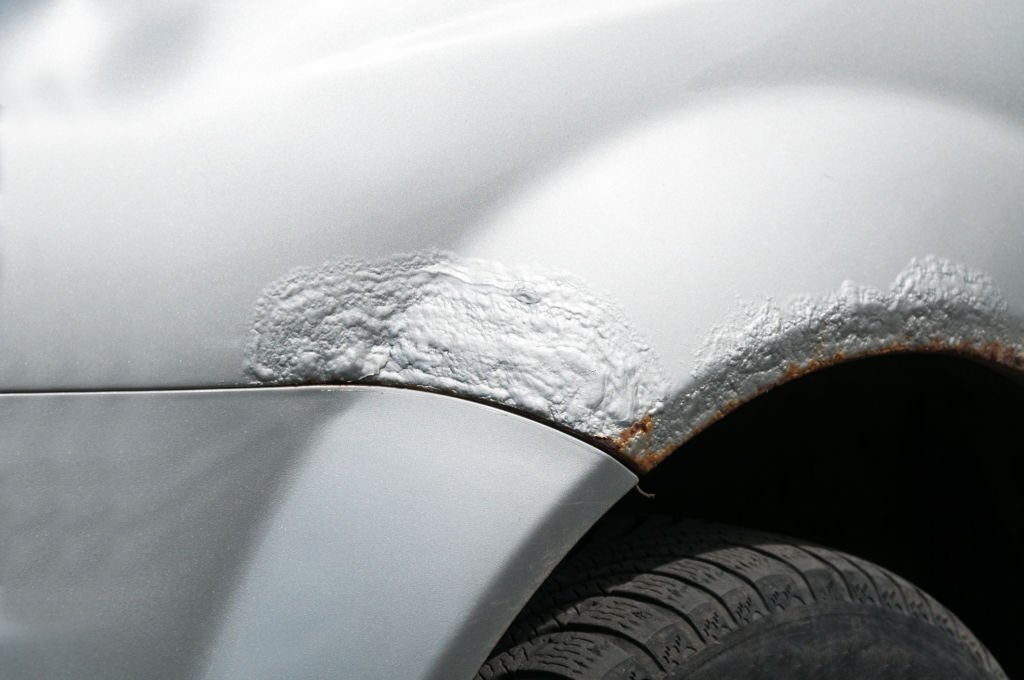Owning and operating a vehicle in the UK is great. There is beautiful countryside and cities to explore that aren’t easily accessible by transit and some of the best adventures are just off the beaten path (which is easy to get to if you drive a car).
What can be challenging is that the weather, as well as what is used to maintain the roads, can wreak havoc on your car. What kind of havoc? Rust. What can start as an annoying rust spot can quickly turn into a problem that is out of control, costing you money and putting you at risk.
What Causes Rust Damage on Vehicles?
According to Mark from Preserve Protect “Rust and corrosion are caused by the oxidation of the metal on and in your car.” This oxidation eats away at the metal, causing destructive wear and tear all the way from the body panels to the frame rails and causing everything from simple paint bubbling to the complete deterioration of whole car parts. Road salts, how you drive your car, how you maintain your car, the climate you live in as well as the age of the vehicle all play a crucial role in how much rust your car is likely to have.
Is Rust Something I Should Be Concerned About?
Absolutely! Rust can work its way into your engine, causing major mechanical issues that can severely reduce the longevity of your car’s engine. Rust on your car can also cause electrical issues as rust eats away at the electrical wiring, resulting in often expensive-to-diagnose-and-fix electrical problems. Most concerning, rust can cause serious safety issues by destroying the structural integrity of critical safety components in your car.
Are There Different Types of Rust?
Yes. Rust typically will appear in one of three forms.
- Surface Rust: This is the easiest to fix and the least concerning because it doesn’t affect the safety of the passengers or the mechanical efficacy of the car.
- Scale Rust: This rust has worked its way past the surface and has begun eating away at the metal beneath.
- Penetrating Rust: Penetrating rust is the result of neglect and time. This type of rust will create safety and mechanical concerns by truly beginning to erode the underlying structure of the metal on your vehicle.
What are the Benefits of Regular Rust Inspections?
Rust-proofing and rust inspections on your vehicle will result in benefits that will serve you in both the shortterm as well as the long term.
- Rust Free Cars are Safer
Regular maintenance, as well as the repair and replacement of any car parts that are damaged by rust, will lead to a safer and more reliable vehicle.
- Save Money
By catching the early signs of rust (bubbling and irregular paint, body damage, puddles of wetness on the floor or roof of your car, etc.) and dealing with them as soon as possible, you are saving yourself the cost of larger and more expensive repairs in the future. As is often repeated, an ounce of (rust) prevention is worth a pound of cure!
- Increase the Lifespan of Your Vehicle
Vehicles, as complex as they are, can last an incredibly long time… if you take care of them. Remove and prevent rust from forming and you will be significantly extending the life span of your vehicle.
- Preserve Resale Value
While it is well known that most cars (outside of classics and certain other types) are a depreciating asset, you will still be able to get some of your money back when you decide to sell your vehicle. By stopping the rust in its tracks, you are guaranteeing yourself a higher resale value than if you would have let the rust have its way.
Avoid Rust Issues by Inspecting Your Car for Rust
Rust is no one’s friend. With a few simple steps and some diligence, you can avoid major issues with your vehicle and ensure that it lives a long, healthy, and productive life, all while looking great and rust-free.











